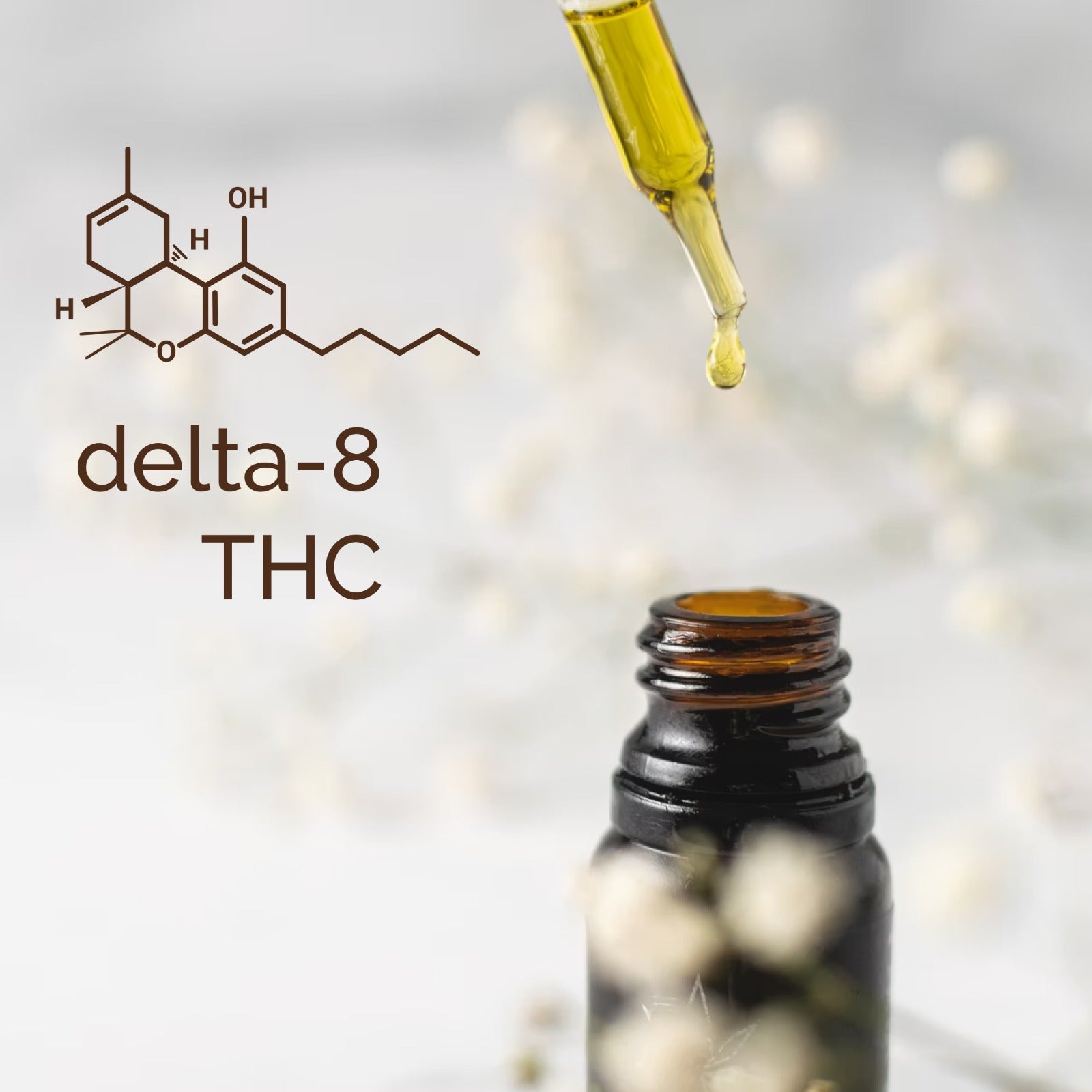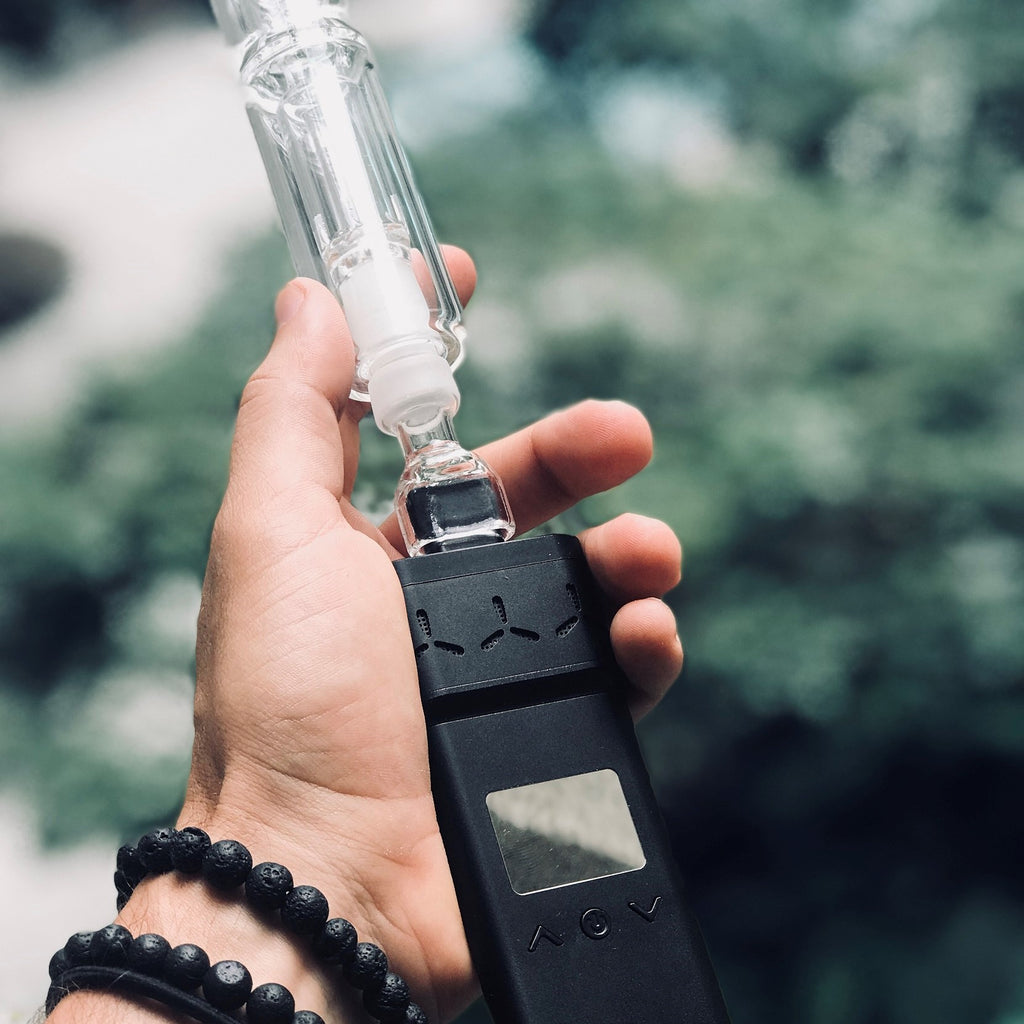Delta-8 THC- The complete guide!

What you should know about Delta-8 THC
Delta-8 THC has gone from relative obscurity to a thriving alternative to conventional cannabis options. Delta-8 THC is occupying the market, especially in states where cannabis is illegal, from using it for smoking and vaping and making edibles.
Delta-8 THC exists in a grey area, which means the sales in all states are legal, but it does come with some caveats, with the biggest being that the products that have Delta-8 in them aren't naturally occurring but are instead made in a lab from hemp.
That's something that (perhaps rightfully) causes unease among people. Should it, though? Let's find out.
What is Delta-8 THC?

Simply put, Delta-8 THC is a chemical compound found in small amounts in cannabis. It's an isomer of Delta-9 THC, the most commonly found THC compound.
This means they have a similar chemical formula but a different molecular arrangement—Delta-8 THC- has noticeable effects, especially potency and strength.
Derived from Hemp, Delta-8 THC is a milder type of loose leaf that's usually synthesized from CBD and is in many ways a softer version of regular THC found in dry herb.
The amount of Delta-8 THC found naturally in hemp and cannabis is low - around 0.1% and more inadequate.
So to create an adequate amount or dose of Delta-8 THC, it's usually synthesized from the CBD that's found in abundance in hemp.
How?
What this means is that the molecular arrangement of CBD (which is similar to both types of THC) is changed to mimic that of Delta-8 THC:

For many, Delta-8 THC is an excellent alternative to conventional loose-leaf, especially in states where Delta-9 (regular) THC-based cannabis is still illegal and for those that dislike the stronger highs and effects associated with regular THC.
However, perhaps more importantly, it's also being heralded as a great middle-ground between THC and CBD: it's a lot more relaxing and mellow than many strains of loose leaf.
The Hemp loophole
The Farm bill in 2018 that legalized the cultivation and use of hemp allowed CBD and other hemp derivatives in a wide range of commercial and industrial needs.
This meant that every part of the hemp plant could be used, which is how CBD became legal as its one of the main compounds of hemp. Hemp legally has to have less than 0.3% THC in it.
Therefore, CBD is usually chemically synthesized by rearranging molecules to resemble delta-8-THC closely. So technically, this means Delta-8-THC is derived from hemp, which makes it "legal," but there's some friction on what this really means.
The long and the short of it is that you can buy Delta-8 THC from most states in the country (except for the nine that have restricted or banned its use). There are many packaged products like gummy bears, candy, and even synthesized delta-8-THC dry herb that you can smoke.
Benefits & shortcomings of Delta-8
Delta-8-THC is an excellent alternative for people who live in places where loose-leaf is illegal. While it's not going to be nearly as strong or as potent, for people who dislike the mental "heaviness" associated with Delta-9 THC, Delta-8 THC is a lot milder and will suit those who prefer a more mellow high.
Why? Because Delta-8 THC doesn't bind as strongly as a traditional dry herb to our CB1 receptors in the brain (they're responsible for the high and other bodily/mental effects one sees when using loose-leaf).
The strength of the bond of Delta-8 THC to CB1 receptors is about a third of Delta-9 THC, which is why the doses of Delta-8 THC in products are usually higher.
While Delta-8 doesn't bind as strongly to our CB1 receptors, it still provides some incredible health benefits in slightly higher doses.
Aside from the potency of Delta-8 THC, it isn't much different from traditional dry herb. It has a similar list of therapeutic benefits, including helping with pain relief, reducing nausea, especially when it comes to cancer patients and their reduced appetite due to chemo.
It also helps with anxiety and depression, among many others, and can be a viable treatment option for people who can't access medical marijuana, though CBD remains a viable option in that case.
Some many reputable companies and businesses have been cultivating and selling Delta-8 THC products in the US. Delta-8 bud, for the most part, is similar to loose leaf but feels physically "crumbly-er" and perhaps lighter.
More importantly, the taste profile remains primarily unchanged, which is a great thing, especially for people more accustomed to toking or vaping. Companies like Diamond CBD, Everest, and 3Chi sell a wide range of Delta-8 THC and CBD products that can be used in multiple ways.
The Synthetic stigma
With Delta-8 THC being a "synthesized" version of cannabis, the stigma of synthetic weed (spice) has been attached to it despite Delta-8 being safe and useful.
However, since delta-8 THC is a form of "synthetic" weed, it brings with it the stigma of it. It's important to note that unlike the other synthetic cannabis that became popular earlier this decade (popularly called spice), Delta-8 THC, synthesized correctly and bought from reputable businesses, doesn't have gnarly side effects that can be seriously bad for your health.
Spice, for example, could knock people over, cause severe hallucinations and make people forget entire hours or days after consumption.
Delta-8 THC suffers from no such effects and is a much easier pill/gummy to swallow, literally.
Can you pass a drug test using Delta-8 THC?
We're sure many people were wondering this when they first heard about Delta-8 THC. Most tests detect regular THC, so usually, you'd think that you can pass the drug test.
However, most products and byproducts of hemp have regular Delta-9 THC in them, so there'll be traces of THC in your bloodstream. So, no, you can't pass a drug test using Delta-8.
Would legalization cause the end of Delta-8?
We know that Delta-8 is not as potent as regular THC, whether in the recreational arena or the medical wait room. The biggest benefit and appeal of Delta-8 right now is that it's broadly legal across the United States.
Like the bud light of weed, making it easier for many more people to enjoy Cannabis, especially newbies anxious to try out pot because of strong highs or side effects.
The lack of regulatory oversight is especially a cause for concern as it means there's no knowing what some products may contain.
A growing number of experts and people in the field of chemistry are raising alarm bells on Delta-8-THC.
While it is understood that Delta-8 THC in and of itself is not unsafe, the fact that they're synthesized in a lab and are not approved by the FDA and other regulatory bodies means that it doesn't inspire much confidence for many people.
As things stand, anyone can currently market a pack of gummy bears or tinctures containing Delta-8 THC, and it may have something completely different in it instead.
Regulatory frameworks and an improvement in cannabis administration, in general, are necessary to ensure people's safety and health.
More regulation seems to be the need of the hour and is something that the industry might be moving towards in Delta-8 THC.
It's a complex issue with many things going on at once that distract from the overall benefit that Delta-8 THC provides. Improvements in regulatory oversight in how the THC is synthesized and sold need to be implemented, but Delta-8 strains of THC can genuinely become the beer of weed otherwise.



